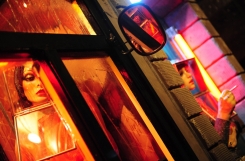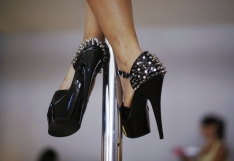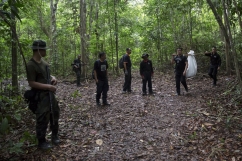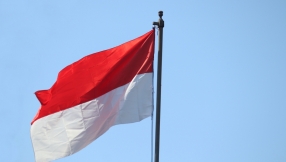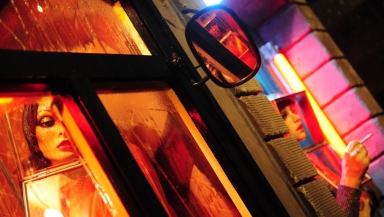
Next week Amnesty International will ask delegates to vote on proposals to recognise prostitution as a human right.
According to Amnesty prostitution is a free choice and it contends that "by definition sex work means that sex workers who are engaging in commercial sex have consented to do so".
This viewpoint, however well intentioned, fails to recognise that factors such as addiction, abusive partners, poverty and harmful experiences during childhood can all conspire to mean a person is selling sexual services because they feel they have no other option.
Prostitution is not a job like any other, but in the main is exploitative. It is not a free choice when the seller faces a range of circumstances that conspire to limit their freedom of choice. Indeed, many are involved in prostitution because of an absence of choice. As International human rights lawyer Jessica Neuwirth put it: "there is no choice in the absence of freedom to choose otherwise".
I also have an issue with the power imbalance between buyer and seller. The buyer is paying the seller for the use of his or her body. While in a small minority of cases, free consent on the part of the seller might be a reality, often there is no free consent at all. It is not right that someone can exploit another human being for the purpose of sexual gratification. It certainly should never be considered a human right. To argue that it should be seems to me a gross denial of the reality: that many, many people in prostitution are being exploited.

Then there is the clear and strong link between prostitution and human trafficking. Amnesty denies this link and urges its members to view them as distinct phenomena, not related to each other. However, there is a demonstrable link. A resolution passed by a large majority by the Parliamentary Assembly of the Council of Europe in April 2014 states: "Although they are distinct phenomena, trafficking in human beings and prostitution are closely linked. It is estimated that 84 per cent of victims in Europe are trafficked to be forced into prostitution, victims of trafficking represent a large share of sex workers." The European Parliament passed a resolution in February 2014 said: "Prostitution – both globally and across Europe – feeds the trafficking of vulnerable women and under-age females."
In 2013, the Trafficking in Persons (TIP) report from the US State Department said: "If there was no demand for commercial sex, sex trafficking would not exist in the form it does today. This reality underscores the need for continued strong efforts to enact politics and promote cultural norms that disallow paying for sex. Too often, trafficked victims are wrongly discounted as 'consenting' adults." It is worth saying the TIP report is the only government level report looking at human trafficking legislation around the globe of its kind.
So we can draw the following conclusion: prostitution facilitates and encourages trafficking for sexual exploitation.
Amnesty is at a crossroads here. If it goes down the route of campaigning for the sex trade to be decriminalised, it will have departed from its founding principles. To try and argue prostitution is a human right is to argue the exploitation of another human being for sexual pleasure is a right. This sends a terrible and tragic message to thousands of people caught up in prostitution, not out of choice but because of exploitation.
Across the globe, nations are waking up to the need to tackle human trafficking. But to try and deal with trafficking, while failing to address demand for commercial sex is to essentially do a patchwork job. One of the principal drivers behind trafficking worldwide is demand for sex. To truly empower victims and address the trafficking of vulnerable people, the purchase of sex should be banned. This is the model adopted in Sweden and Norway and Northern Ireland followed this route in December last year. Evidence from Norway and Sweden shows just how effective the criminalisation of the purchase of sex can be at helping prevent the rise of human trafficking.
Amnesty does a lot that is good. If it votes to recognise prostitution as human right, that would be tragic. It will empower pimps and sex traffickers everywhere and fundamentally let down thousands of vulnerable and exploited people. However well intentioned its desire to decriminalise the sex trade may be, it is deeply misguided. For the sake of their reputation, I hope it rejects this proposal.
James Mildred works for CARE but writes in a personal capacity.










